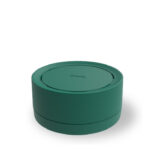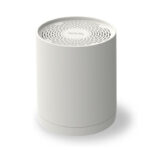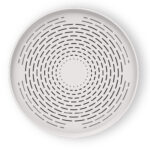Indoor pollution and pets

The effects of pollution on pets

Air pollution is a major problem not only because it endangers our health but also because it poses a great danger to that of our pets.
Air pollution is a problem that affects the entire planet and compromises the lives of all living creatures.
Some of the diseases of animals caused by pollution are mainly: bronchitis, coughs, asthma, allergies, breathing difficulties, lung tumors, alterations in the blood-brain barrier, problems with cortical neurons, and the accumulation of groups of proteins associated with the development of Alzheimer’s in people.
All diseases resulting from breathing rather polluted air.
Our animals suffer more from the effects of pollution since they, living and moving a few inches above ground level, are in greater contact with the fine particulate matter that tends to accumulate on the ground.
Fur, moreover, can retain pollutants that are ingested by the dog or cat as it moistens its coat.
The danger of fine particulate matter and cigarette smoke

These are those tiny particulate matter particles in the air we breathe every day, with even serious consequences for our health.
According to WHO estimates, about 3 million people around the world die each year from particulate matter. Particulate matter also harms the climate, according to Arpa (the regional agency for environmental protection), increasing the effects of climate change, visibility, contaminates water and soil, damages buildings and, of course, the health of living beings (not only humans).
Scientific studies have also shown that cats living in homes with cigarette smokers have reduced lung function compared to felines living in smoke-free homes.
Scientists are also exploring links between common indoor activities and certain types of cancer in dogs.
Sources of pollutants derived from human activities can include cleaning products, from detergents of various types, to deodorizers, fumes and cooking fumes-all substances commonly used in the home-as well as paints for walls or furniture. Homes also can be filled with pollution from sources such as wood-burning stoves and fireplaces, tobacco smoke, and cooking.
Poor air quality in confined spaces can cause obvious and annoying symptoms with immediate effects; in the long term, however, as indicated by the Ministry of Health, the effects can be even more serious, up to and including causing heart disease, attacking the respiratory system and causing immune system disorders.
These are all signs that could indicate a high percentage of pollutants in the air we breathe that pose a real and concrete danger to both our pets and our family, especially children.







